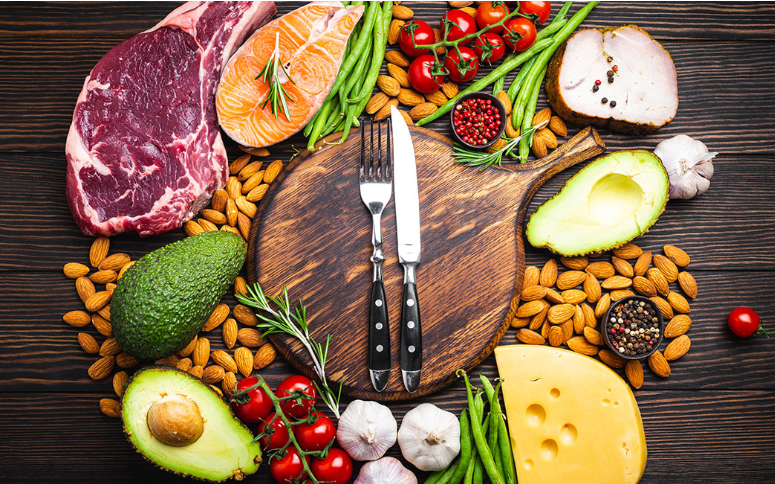Diet and Nutrition for Lyme Disease Recovery


Recovering from Lyme disease can feel like an uphill battle, but the right food choices can make a real difference in how you feel. Nutrition is the building blocks of the body, it is more than just eating healthy. It gives the needs that are required to heal. Let’s explore how a thoughtful diet can help you regain energy, reduce symptoms, and support your recovery journey.
What are the most important nutrients for a Lyme Disease Recovery Diet?
The most important nutrients for a lyme disease recovery diet are Omega-3, vitamin D, magnesium, and antioxidants. These nutrients are necessary for the body to fight against inflammation and support healing.
Lyme can leave you feeling exhausted, inflamed, and out of sorts. Omega-3 fatty acids, found in salmon, walnuts, and flaxseeds, are like tiny firefighters, reducing inflammation in your body. Vitamin D, which you can soak up from sunlight or get from fortified milk and eggs, strengthens your immune system and boosts your mood—a great relief if Lyme has left you feeling down.
Magnesium helps to relax sore muscles and enhance overall energy. It is found enormous in foods such as spinach, almonds, and pumpkin seeds. Antioxidants that help repair damaged cells and protect from further damage are found in vegetables, berries and green tea.
Why is staying hydrated so important for Nutrition for Lyme Healing?
Staying hydrated is so important for nutrition for lyme disease as it flushes out toxins. It also helps in enhancing energy levels and keeps you calm.
Think of water as the oil that keeps your engine running. When you’re recovering from Lyme disease, your body works hard to eliminate toxins, especially if you’re on antibiotics. Drinking enough water—8–10 glasses a day—helps your liver and kidneys do their job. But hydration isn’t just about water.
Taking chamomile or ginger tea will offer benefits like reducing inflammation and improving digestion. Coconut water is another great option with its natural electrolytes, when you’re feeling weak or dehydrated. Keeping yourself hydrated also helps reduce fatigue, so you can feel a little more energized to get through your day.

What foods should I avoid in a Lyme Disease Recovery Diet?
Steer clear of processed foods, sugar, gluten, alcohol, and caffeine—they can slow your recovery.
There are certain foods that will delay your recovery as it increases inflammation or affects your gut health. Processed foods, like packaged snacks or fast food, often contain unhealthy fats and preservatives that can make inflammation worse. Sugary treats might give you a quick energy boost, but they also feed harmful bacteria and yeast in your gut, leading to imbalances.
Certain foods like wheat-based products like bread and pasta. It can irritate gut lining if you are sensitive or allergic to it. Consumption of alcohol is also not good for your health in such cases. Even caffeine intake can lead to an increase of anxiety and disrupt sleep.
How can probiotics help with Nutrition for Lyme Healing?
Probiotics help with Nutrition for Lyme healing by strengthening your immune system and enhancing digestion.
If you’ve taken antibiotics to treat Lyme disease, your gut might feel off balance. Antibiotics kill harmful bacteria, but they also wipe out the good bacteria that your gut needs to stay healthy. This can weaken the immune system and cause symptoms like diarrhea and bloating. Probiotics introduce good bacteria back into your system and restore the balance for a healthy gut.
Foods like yogurt, kefir, kimchi, and sauerkraut are rich in natural probiotics. If you’re not a fan of fermented foods, a good-quality probiotic supplement can do the trick. Pair these with prebiotic foods like bananas, garlic, and asparagus to give the good bacteria the fuel they need to thrive. A healthy gut equals a stronger, happier you.

How does an anti-inflammatory diet help with a Lyme Disease Recovery Diet?
An anti- inflammatory diet helps with this disease as it eases joint pain, reduces swelling, and helps your body heal faster.
Inflammation is one of the biggest challenges of Lyme. This leads to discomfort such as joint pain, brain fog. An anti-inflammatory diet is your secret weapon. Start with turmeric—it contains curcumin, a powerful compound that fights inflammation. Intake of ginger added to your meals for its soothing properties.
Strawberries and blueberries are rich in antioxidants that cool inflammation. Leafy greens like kale and spinach are nutritional powerhouses, full of vitamins and minerals that promote healing. At the same time, avoid inflammatory triggers like fried foods, sugary drinks, and refined oils. This diet reduces the discomfort and protects your body from further damage.
What herbal teas play a role in diet tips for Lyme sufferers?
Herbal teas like chamomile, ginger, and green tea offer inflammation relief, hydration and relaxation.
Sipping on a warm cup of tea can do more than just comfort you—it can help your body heal. Green tea which has antioxidants, protects your cells from damage and boosts detoxification. Chamomile tea is a natural stress-reliever, which is vital for recovery that helps you sleep better and relax.
Ginger tea on the other hand has anti-inflammatory properties, supports your digestion and controls nausea. Peppermint tea is also the best herbal tea for headaches or digestive issues. These teas are gentle, and easy to include into your daily routine. These herbal teas are a great way to stay hydrated.
Can diet alone cure Lyme disease?
No, Diet alone cannot cure lyme disease but it’s a powerful tool to support your treatment and help your body recover.
Lyme disease requires medical treatment, like antibiotics, to tackle the infection itself. However, your diet is a crucial key in fast healing and making that treatment effective. Think of it this way: antibiotics and therapies address the problem, while a healthy diet helps your body rebuild and recover. Taking the right foods according to your body needs boosts your immune system, provides the energy your body needs, and reduces symptoms like fatigue and inflammation. With medical care, a right diet rich in nutrition can make your recovery faster.
Wrapping It Up
Recovering from Lyme disease isn’t easy, but every small step you take adds up. A balanced diet that includes nutrient-dense foods and anti-inflammatory gives your body the support it needs to heal. Staying hydrated, avoiding harmful foods, and embracing gut-friendly habits, and you’ll be on the right track. Be patient with yourself, and know that every healthy choice brings you closer to feeling better.
